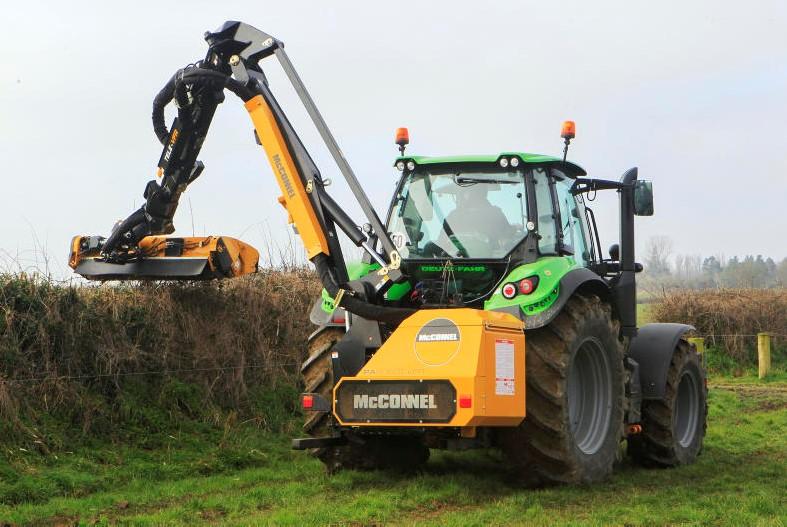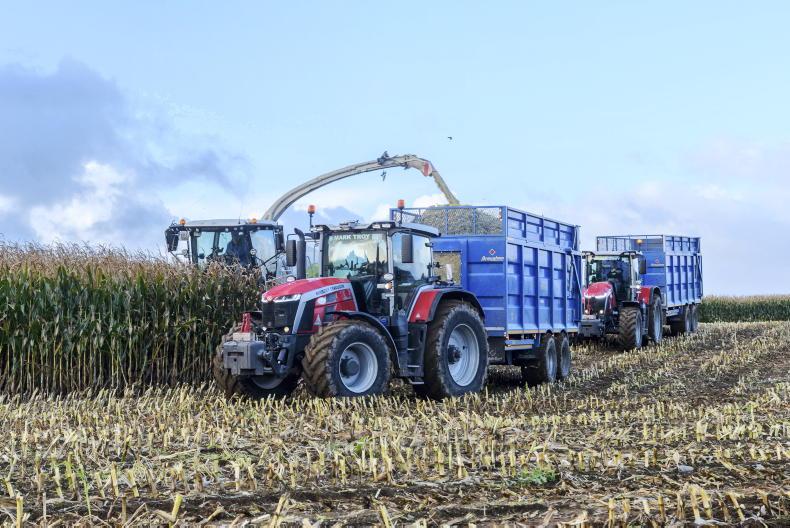With hundreds of hedge-cutting contractors set to begin their seasonal work at the beginning of September, the Association of Farm & Forestry Contractors in Ireland (FCI) has published an analysis of the costs involved in running a tractor and hedge cutter. The association says that, all too often, contractors lack important system cost information.
“Contractors tend to charge for their hedge-cutting operations based on a combination of the amount of work on the farm, last year’s rate and what you believe competitors are working for.
There is an urgent need to examine machinery costs for all contractor operations
“With modern high-cost machinery and increasing labour costs (if you can get drivers), there is an urgent need to examine machinery costs for all contractor operations. Each individual enterprise needs to be generating a profit. Charge rates must be based on all operating costs,” the FCI noted.
The analysis is based on a hedge-cutting service using a modern 150hp tractor and a contractor-specification hedge cutter with 6m reach. To establish overall costs, the FCI broke it down to individual costs.
Tractor costs
Typical tractor replacement costs are based on hours of use. A typical 150hp tractor will cost between €10/hr and €15/hr on the clock. We know that when we go to trade in a tractor with 3,000 hours, that it costs in excess of €30,000 to do so.
So being generous, tractor ownership, which covers essentially the depreciation cost, comes to €10/hr.
Labour costs
When looking at labour costs, you need to include all of the cost, your employer’s PRSI, etc. Working with ifac farm accounts, the FCI has established the true cost of labour to a farm-contracting business.
There is always the struggle to meet repayments and be profitable
The association said that if you are paying a hedge cutter driver €500 into their hand then the driver is costing you close to €720/week. That converts to €18/hr on a 40-hour week.
Fuel costs
You also need to include the cost of travelling to and from the job when looking at fuel costs because, in many cases, the travel operation consumes more fuel per hour then the hedge-cutting itself.
A typical contractor hedge cutter outfit will consume 7l of diesel per hour. At €0.70/l, that equates to €4.90/hr in fuel cost.
Repair costs
Repair costs can be difficult to calculate because the machine age can make a difference. Generally, repair costs are calculated at between 3% and 5% of the machine buying price spread across the season.
In the case of a €100,000 tractor, that amounts to €3,000/season or €3/hr if we assume 1,000 hours, out of which about 11 weeks or 500 hours is allocated to hedge-cutting work in the season.
Insurance costs
The typical yearly comprehensive insurance cover costs for a modern four-wheel drive 150hp tractor will be in the region of €1,500. If we assume that the tractor will be doing some other duties during the year, giving 1,000 hours of annual use, which is often not the case, then we allocate a cost of €1.50/hr for insurance costs.
Hedge cutter costs
To find out the costs associated with owning the hedge cutter, the FCI used a simple costing system that has been in the construction machinery sector for decades and always proves accurate against other more detailed costing approaches.
Know your costs, set your margins and invoice your customers as soon as the work is done
This is based on a cost of €0.50/€1,000 invested in the machine. In the case of the contractor-specification hedge cutter costing €30,000, the machine cost is €15/hour.
“This is information that you need to know when planning the services that you, as a contractor, offer each year. This rate will allow you to have money to re-invest in a new machine over its lifetime. It will allow you to pay staff a reasonable wage but it does not guarantee you a healthy profit.
“Farm contracting is a business. It is a business where the contractor provides a service, provides local skilled employment, while there is always the struggle to meet repayments and be profitable.
“Know your costs, set your margins and invoice your customers as soon as the work is done,” the association concluded.









SHARING OPTIONS